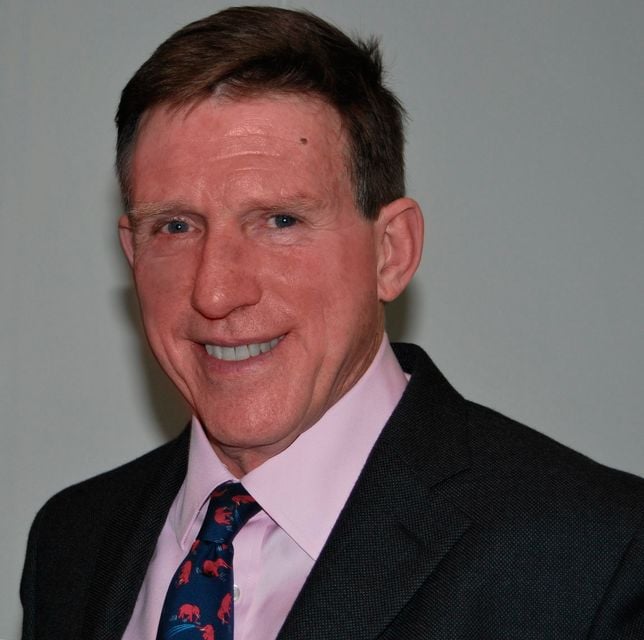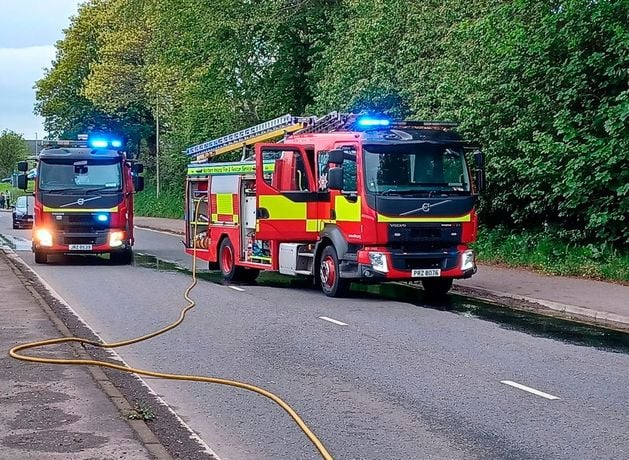John Shannon from Larne was off duty and on his way home from Ballymena Fire Station on the evening of May 5 last year when he came across a three-vehicle pile-up.
One vehicle was on fire with an unconscious man trapped inside. Three other passengers were wounded but walking.
Mr Shannon saw the fire spreading toward the car’s fuel tank and, without any equipment, took immediate action to rescue the unconscious man.
Despite the risk of explosion, he approached the burning vehicle, reached inside to undo the driver’s seatbelt, and dragged him 20 metres up the road to safety.
A police officer arrived at the scene and began assisting Mr Shannon when the car suddenly exploded.
By that time, they had moved to a safe distance. The two provided initial treatment at the roadside before the man was taken to hospital.

Andrew Chapman Secretary of the Royal Humane Society.
Praising Mr Shannon for his bravery, Andrew Chapman, Secretary of the Royal Humane Society said: “What he did was incredibly brave.
“As a firefighter he knew better than others the dangers of going near a vehicle that is on fire, but his only thought was to save the man who was unconscious and trapped inside.
“As he was freeing the man and pulling him to safety there was a real danger that the fire could have reached the petrol tank and the vehicle would explode with him reaching inside it.
“The reality off that risk can be seen in that it did explode a short time after the man had been pulled to safety.
“Mr Shannon was a true hero and richly deserves the our Bronze Medal which is one of the highest awards we make.”
The roots of the Royal Humane Society stretch back nearly 250 years. Other than awards made by the Crown it is the premier national body for honouring bravery in the saving of human life.
Founded in 1774 by leading medical figures William Hawes and Thomas Cogan, the organisation was established to promote life-saving resuscitation techniques – an innovative focus at the time.
Over the years, the organisation’s focus expanded beyond resuscitation, introducing an honours system to recognise acts of bravery in saving lives.
The Society also awards non-health care professionals who perform a successful resuscitation.
Since it was set up the Society has considered over 90,000 cases and made over 220,000 awards.
The Society is a registered charity which receives no public funding and is dependent on voluntary donations.
